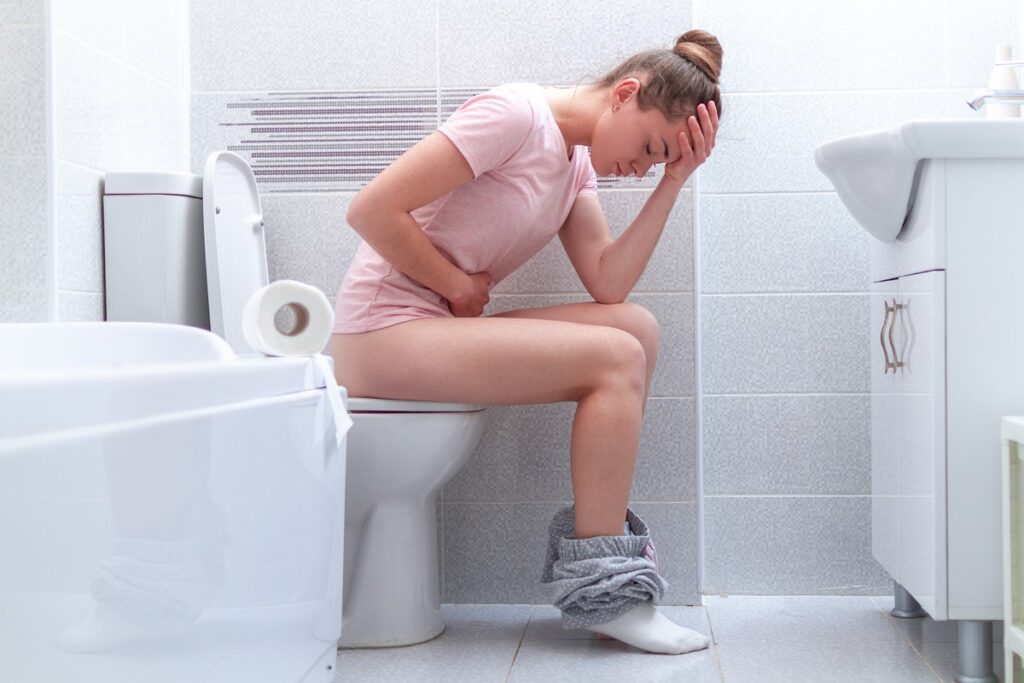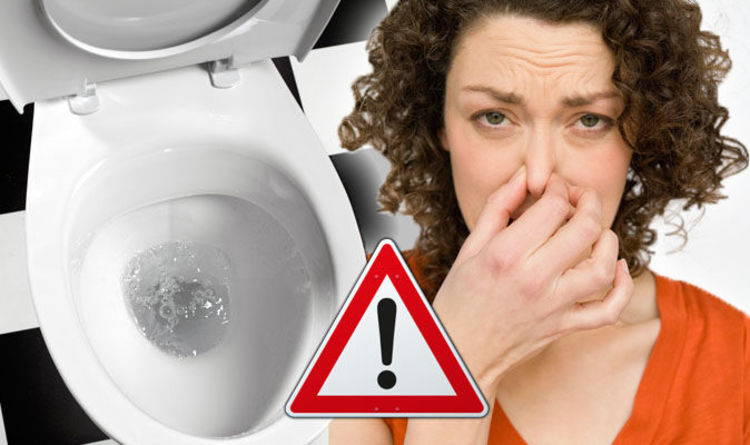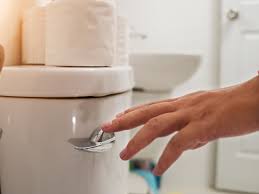Poop, also known as stool, comes in a variety of shapes, hues, and textures. It could also release distinct odour. Each stool variable can offer you more information about your health and indicate if you have certain medical concerns. Let’s face it, nobody likes to smell like crap.
However, if the stink from your faeces suddenly becomes unbearable, you might be wondering, “Why I’m having Metal Smelling Poop? Let’s discuss everything you need to know about If your poop smells like metal, common causes, and treatments.

Understanding Metal Smelling Poop
Certain substances in the digestive tract may cause a metallic or sulphurous odour in faeces. Food is broken down into smaller molecules during digestion, which the body may absorb and use for nutrients and energy. Nevertheless, some meal ingredients are difficult for the body to process and are thus excreted as waste.
These substances may include sulphur-containing compounds and heavy metals, among others, that smell metallic or sulphurous.
1. Bright red blood in the water or on the toilet paper
This indicates that you are bleeding close to your rectum. Usually, nothing major like a little cut, anal fissures, or haemorrhoids are the cause of this. However, you should consult a physician if your stomach aches or you have dizziness.
2. Black, tarry substance on your stool or dark red blood
This indicates that there is more bleeding in your intestines or stomach. Even while it seems implausible, there’s a chance that it’s anything more serious, such as stomach cancer or an ulcer. You should visit a physician right away.
3. No blood in your stool
If there is no blood in your stool, the iron scent is probably the result of a small, innocuous dietary adjustment. The details will be covered in detail right below.
Causes of The Mysterious Metallic Odour
If you’ve observed that a pungent metallic smell has accompanied your bowel movements, it’s only natural to question what might be causing it. Here are some potential causes of the metallic odour:
Diet
The stuff we consume has a big influence on how our stools smell. Because of their iron concentration, some meals, including red meat, can smell metallic. Moreover, eating foods high in sulphur, such as broccoli or eggs, can cause the faeces to smell sulphurous, which might be confused with a metallic taste.
Supplements and Medications
Iron supplements and some drugs can change the smell of faeces. The extra iron that iron supplements, often recommended for iron deficiency anaemia, expel through the digestive tract can give faeces a metallic taste. Similar to this, certain drugs may cause changes in the smell of your faeces, particularly those that include sulfonamides or heavy metals.
Gastrointestinal Bleeding
The stool may smell metallic if there is bleeding in the stomach, which may be caused by ulcers, inflammatory bowel disease, or other conditions. This happens due to the blood passing through the digestive tract, which might give faeces a metallic scent instead of its typical one.
Bacterial illnesses
Stool odour might vary due to several bacterial illnesses, including those brought on by Salmonella or Clostridium difficile. These diseases can upset the regular balance of bacteria in the stomach, resulting in foul-smelling faeces that may smell sulphurous or metallic.
Iron Overload
The body may experience iron overload due to conditions like hemochromatosis, a disease of excessive iron absorption. In addition to depositing iron in the liver and pancreas, excess iron can also increase the quantity of iron expelled via the digestive tract, which can impact the odour of faeces.
Heavy Metal Toxicity
Among other symptoms, exposure to heavy metals like lead, mercury, or cadmium can cause toxicity, which might appear as changes in stool odour. Exposure to heavy metals can happen in the workplace, in the environment, or from consuming tainted food or water.

Is My Smelly Poop a Medical Concern?
Even though a passing metallic odour in the stool may not be of immediate concern, it is crucial to speak with a doctor if you suffer any of the following:
1. Odour persistence or worsening
It’s not usually necessary to seek medical attention right away when faeces has an unpleasant or strange odour, although it can occasionally be a sign of underlying health problems. Several other reasons might affect stool odour, including medication, nutrition, and underlying medical issues. Stool odour fluctuations sometimes, such as a strong or metallic smell, would not always require emergency medical intervention.
It may be wise to seek medical attention if the change in stool odour is ongoing, accompanied by other worrisome symptoms, or noticeably different from one’s typical bowel habits. Changes in stool odour that persist over time may indicate gastrointestinal problems, including but not limited to infections, malabsorption disorders, inflammatory bowel disease, and gastrointestinal haemorrhage.
Furthermore, several warning signs accompanying changes in faeces odour might point to a more significant medical issue. Some warning signs are blood in the stool, excruciating stomach discomfort, chronic constipation or diarrhoea, inadvertent weight loss, and exhaustion. For additional assessment and suitable treatment, it’s critical to speak with a healthcare provider immediately if any of these symptoms are present combined with changes in faeces odour.
2. Additional symptoms
It’s important to visit a doctor if you experience additional symptoms, such as abdominal pain, bloating, changes in bowel habits (such as chronic diarrhea or constipation), unexplained weight loss, or fatigue. These signs and symptoms could point to a digestive issue that needs to be diagnosed and treated.
Also Read : Does Tums help Nausea: Fact or Fiction?
3. Diagnostic Procedures
These include a variety of tests intended to evaluate the health of the gastrointestinal tract. Using sound waves, abdominal ultrasonography can see internal organs such as the pancreas and liver, which can help identify liver illness or gallstones. CT scans offer comprehensive cross-sectional pictures useful for locating tumours, infections, or inflammatory bowel conditions in the abdominal cavity.
High-resolution pictures of organs like the pancreas and liver are provided by magnetic resonance imaging (MRI), which helps identify anomalies like tumours or inflammation.
Biopsies and therapeutic treatments are made possible by direct visualisation of the gastrointestinal system through endoscopic procedures such as colonoscopy and upper endoscopy.
4. Blood tests
Blood tests are essential diagnostic instruments used to evaluate many areas of health, including gastrointestinal disorders. Anaemia, infections, or blood diseases can be diagnosed using a complete blood count (CBC), which measures the red blood cells, white blood cells, and platelets.
Liver function tests, often known as LFTs, diagnose liver illnesses such as cirrhosis and hepatitis by detecting the levels of proteins and enzymes in the blood. The body is inflamed, which can be linked to gastrointestinal conditions such as inflammatory bowel disease. Indicators of inflammation in the body include erythrocyte sedimentation rate (ESR) and C-reactive protein (CRP).
Also Read : Why is my Poop Orange? Explore Reasons and Treatment
5. Imaging testing
By offering precise images of the interior components of the abdomen and gastrointestinal tract, imaging tests are essential for diagnosing gastrointestinal illnesses. A diagnostic tool for diseases including gallstones and liver disease, abdominal ultrasonography creates pictures of the liver, pancreas, and gallbladder using sound waves. Computed tomography (CT) scans help diagnose tumours, infections, or inflammatory bowel disease in the abdomen by providing cross-sectional pictures using X-rays.
High-resolution pictures of organs like the pancreas and liver are provided by magnetic resonance imaging (MRI), which helps identify anomalies like tumours or inflammation. Biopsies and therapeutic treatments are made possible by direct visualisation of the gastrointestinal system through endoscopic procedures such as colonoscopy and upper endoscopy.
Conclusion
A balanced diet, regular exercise, avoiding processed and high-fat meals, taking probiotics, not holding it in, and adopting natural cures are all important ways to prevent your faeces from stinking. You may avoid foul faeces and maintain the health of your digestive system by paying attention to these guidelines!
Also Read : Why I’m having Sudden Blood Blister in Mouth?


